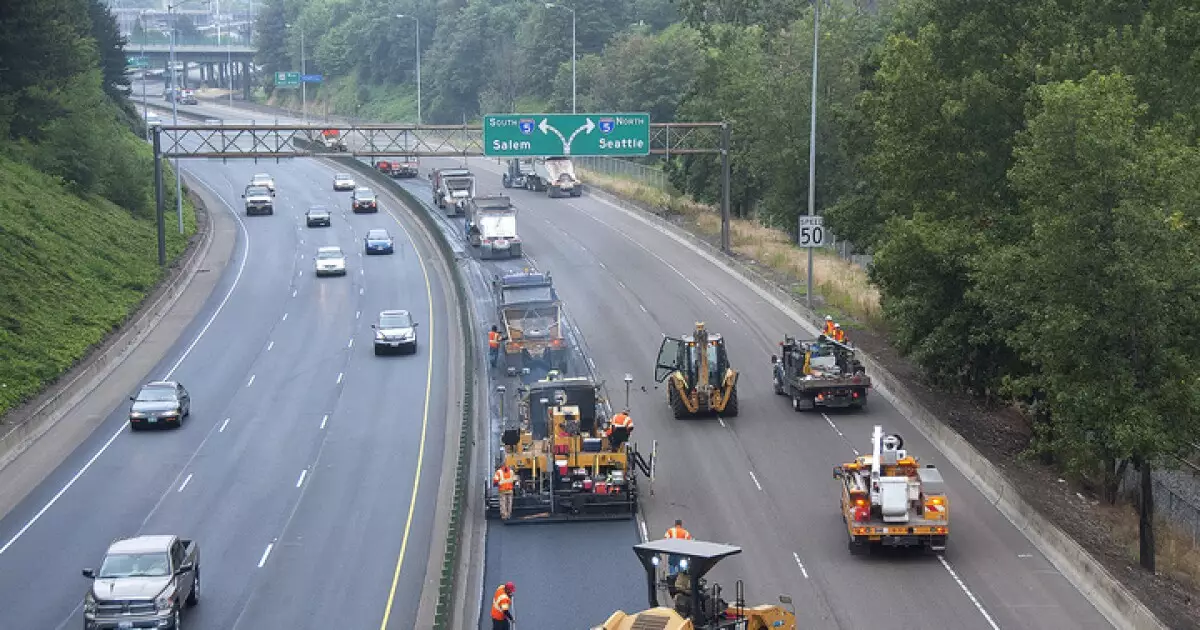The latest transportation bill in Oregon has ignited a fierce debate that extends beyond the black and white of fiscal policy. With a staggering price tag of $14.6 billion looming over the next decade, House Bill 2025 raises concerns about whether it represents a responsible step toward improving our infrastructure or a reckless leap into the abyss of financial burden. The nuances of this discussion reflect a broader trend in politics: the consistent push for increased taxes under the guise of necessity, cloaked in words praising transformation and improvement.
During the current legislative process, supporters tout the bill as an indispensable investment that promises safer roads, repaired bridges, and accountable budget management. Senator Chris Gorsek’s mantra of transformation speaks to the pressing needs of aging infrastructure, but unfortunately, it glosses over a glaring issue—fiscal responsibility. While the state desperately requires updates to its transportation framework, one must question whether taxpayers should shoulder the steep expense.
Oregon’s legislators conducted a statewide listening tour to gauge public sentiment on the state of roads and bridges. However, the apparent dismissal of significant opposition raises the stakes. According to recent polls, a vast majority—61%—of Oregonians oppose increasing taxes to fund these projects. This ignores a core principle of representation in a democratic society: the voices of constituents ought to guide policy, rather than a politically motivated agenda that dismisses dissent.
Shady Legislative Maneuvering
Senate President Rob Wagner’s decision to remove a dissenting committee member in favor of himself is either a strategic move or an egregious display of political overreach. Such actions could easily be interpreted as a troubling disregard for diverse viewpoints. By prioritizing party lines over collaboration, legislators risk alienating segments of the population that feel increasingly marginalized. The narrow margin by which the bill emerged from committee, passing 7-5, symbolizes a fleeting consensus rather than a robust agreement, indicating deep divisions within both parties.
This legislative strategy is perplexing, as Oregon Governor Tina Kotek has already expressed her support for the bill; why resort to underhanded tactics to ensure its passage? It leads to a dangerous precedent where laws can be rammed through with little regard for how they affect the average citizen. Instead of fostering a culture of trust and accountability, such actions could engender distrust in public officials, stirring a volatile political climate for years to come.
Alternative Solutions and Social Responsibility
Interesting alternatives emerged from the Republican side in the form of a competing transportation proposal that emphasizes financial prudence without imposing tax increases. This plan aims to redirect climate relief funding toward necessary repairs, a compromise that should at least warrant consideration. Rather than thrusting citizens further into debt while placing unrealistic expectations on the taxpayers, the proposed Republican bill encourages a dialogue about efficient budget management.
Rep. Shelly Boshart Davis argues that Oregonians expect baseline competency from government services—they want potholes filled and roads plowed without feeling the pinch in their wallets. It’s a sentiment many can empathize with, especially those who grapple with rising costs across the board. Basic services should not be held hostage to political ambitions.
Moreover, the notion of trusting ODOT—an agency with a track record marred by inefficiencies—before asking for more money is not a trivial concern. Instead of merely hammering citizens with tax increases, why not focus on maximizing the efficiency of existing funds before burdening taxpayers with more? If infrastructure is indeed in dire need as claimed, then it is incumbent upon the government to prove its commitment by being transparent about current spending and outcomes before rushing toward a new financial plan.
As the state stands on the brink of a massive tax hike, citizens must ask: is this truly transformative, or simply another scheme to fill the ever-expanding coffers of government with taxpayer dollars? In a time when budgets are tighter than ever, Oregonians deserve better than hollow promises and elusive accountability—real change must come from a thoughtful examination of priorities and responsible fiscal planning.


Leave a Reply